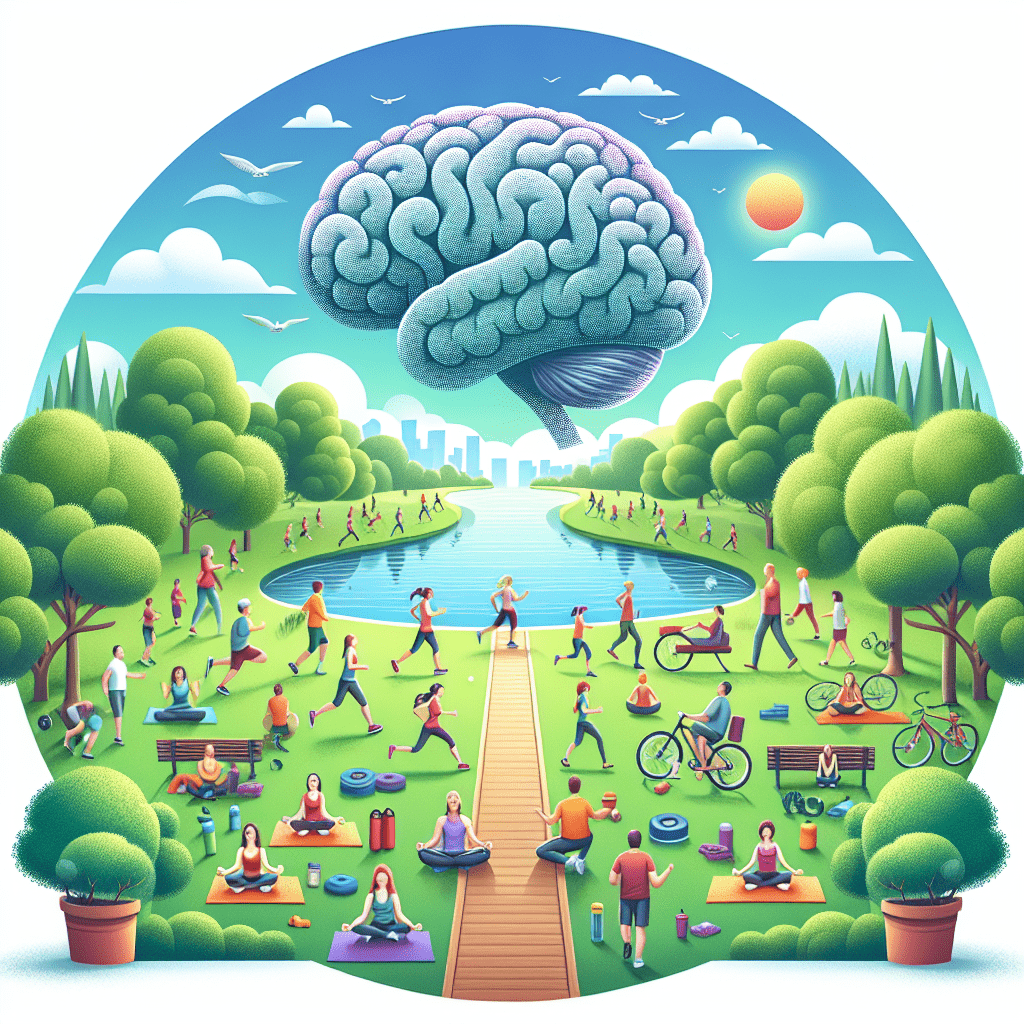Regular exercise is not only beneficial for physical health but also has a profound impact on mental well-being. Studies have shown that engaging in physical activity on a regular basis can improve mood, reduce anxiety and depression, boost self-esteem, and enhance cognitive function. In this article, we will explore the various ways in which regular exercise can positively affect mental health.
1. Improved Mood
Exercise has been shown to release endorphins, also known as the “feel-good” hormones, which can help improve mood and reduce feelings of stress and sadness. Even a short walk or a quick workout can have a significant impact on how you feel, leaving you feeling more relaxed and happy.
2. Reduced Anxiety and Depression
Regular exercise has been found to be as effective as medication in reducing symptoms of anxiety and depression. Physical activity helps in decreasing levels of cortisol, the stress hormone, and increases the production of neurotransmitters like serotonin and dopamine, which are known to improve mood and reduce feelings of anxiety and depression.
3. Boosted Self-Esteem
Engaging in regular exercise can help boost your self-esteem and confidence. As you achieve your fitness goals and see improvements in your physical health, you will also experience a sense of accomplishment, which can positively impact how you view yourself.
4. Enhanced Cognitive Function
Exercise has been shown to improve cognitive function and enhance memory and learning. Physical activity increases blood flow to the brain, which can help in the growth of new brain cells and improve overall brain function. Regular exercise has also been linked to a reduced risk of cognitive decline and dementia in later life.
5. Better Sleep
Regular exercise can help improve the quality of your sleep. Physical activity has been shown to regulate the sleep-wake cycle, leading to better sleep patterns and reduced insomnia. A good night’s sleep is essential for overall mental well-being and can help improve mood and cognitive function.
Conclusion
Regular exercise has numerous benefits for mental health, including improved mood, reduced anxiety and depression, boosted self-esteem, enhanced cognitive function, and better sleep. Incorporating physical activity into your daily routine can have a significant impact on your overall well-being and help you lead a happier and healthier life.
FAQs
Q: How much exercise is recommended for mental health benefits?
A: The American Heart Association recommends at least 150 minutes of moderate-intensity aerobic activity per week for overall health benefits, including mental well-being.
Q: Can any type of exercise help with mental health?
A: Any form of physical activity that you enjoy and can sustain over time can have positive effects on mental health. Whether it’s walking, running, cycling, yoga, or dancing, find a type of exercise that works for you and makes you feel good.
Q: How quickly can I expect to see mental health improvements from regular exercise?
A: Some people may notice improvements in mood and well-being after just a few days of regular exercise, while others may take longer to experience the benefits. Consistency is key, so stick with your exercise routine and give it time to make a difference.
Tip: Make exercise a priority in your daily routine
To reap the full benefits of regular exercise on your mental health, make it a priority in your daily routine. Schedule time for physical activity just like you would for any other important task, and find ways to make it enjoyable and sustainable. Remember that taking care of your physical health is just as important as taking care of your mental health.
#Benefits #Regular #Exercise #Mental #Health
